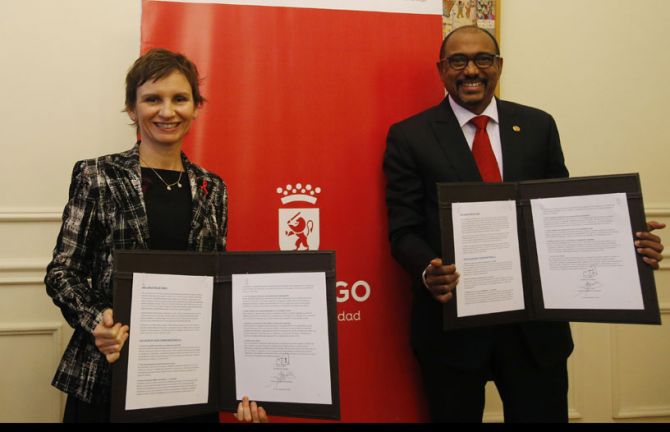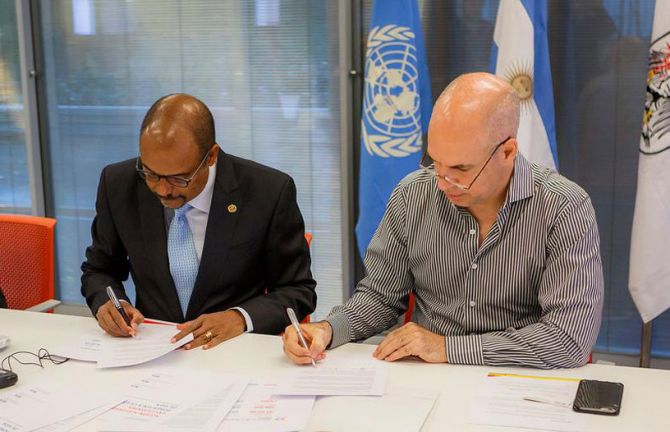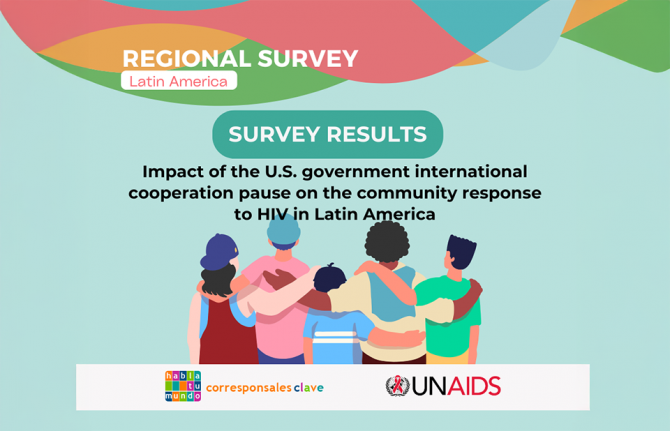


Update
Mayors of Santiago and Buenos Aires pledge to accelerate the AIDS response in their cities
16 September 2015
16 September 2015 16 September 2015The Mayor of Santiago, Chile, and the Mayor-Elect of Buenos Aires, Argentina, have pledged to Fast-Track the AIDS response in their cities over the next five years. Carolina Tohá Morales of Santiago and Horacio Rodríguez Larreta of Buenos Aires signed the Paris Declaration to Fast-Track the AIDS response in cities in the presence of UNAIDS Executive Director Michel Sidibé, who visited Latin America from 7 to 14 September.
The Paris Declaration includes ambitious HIV targets to be reached by 2020. It was first signed in Paris on World AIDS Day 2014 by the Mayor of Paris, Anne Hidalgo, and 25 of her counterparts from cities around the world. Many more have joined the initiative since then.
The goal of Fast-Track cities is to end the AIDS epidemic as a public health threat by 2030 and to eliminate discrimination.
Mr Sidibé commended the city leaders for joining dozens of mayors from around the world who have put their cities on the Fast-Track and committed to leaving no one behind in the AIDS response.
At the signing event in Santiago, held on 7 September, Ms Tohá Morales said the city was making concerted efforts to ensure that young people have access to health services and runs sexual and reproductive rights programmes for young people. Two examples are the Comprehensive Sexuality Programme available in nine schools across the city and the Friendly Spaces Programme, which provides free and confidential health and sexuality counselling to adolescents.
Speaking at the signing ceremony in Buenos Aires on 10 September, Mr Rodríguez Larreta emphasized the importance of eliminating discrimination.
Earlier this year, the City Parliament adopted a ground-breaking anti-discrimination law that prohibits all types of discrimination and establishes new mechanisms that increase access to justice and reparations. The law also calls on the city to educate citizens about their rights.
In Latin America, a large proportion of people living with HIV reside in urban areas, often in specific parts of cities and towns. Cities, especially metropolises like Buenos Aires and Santiago, are home to large numbers of people belonging to key populations, who often lack access to HIV prevention and treatment services. Ending the epidemic in the region requires ensuring that resources, services and support for HIV prevention and treatment reach those populations and locations.
Quotes
“We take the commitment made today very seriously and will work in a coordinated way to accelerate HIV prevention, education and zero discrimination, together with the various vulnerable populations, including young people.”
“For us, the values of non-discrimination and inclusion are very important. Buenos Aires is a tolerant city. You can count on us. We will implement the commitments we make by signing the Paris Declaration.”
“Adopting a Fast-Track cities approach to the response in the next five years is critical. Many people continue to be left behind and out of reach of HIV services in cities. The leadership of cities like Buenos Aires and Santiago will be key to ending the AIDS epidemic in Latin America.”



